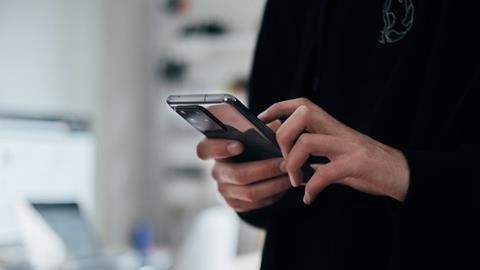Is modern technology to blame for our current mental health crisis? Should we just ditch our phones? Or can they be a force for good? Author Drew Cordell shares his thoughts
For a significant part of my life, I’ve harboured a disdain for smartphones. I believe they bear material responsibility for fostering a socially burdened and insecure younger generation. Furthermore, their role in accelerating environmental degradation troubles me, not to mention my strong aversion to vapid TikTok videos. While I acknowledge some benefits these devices offer, I often wonder if our human existence would be better off without them.
Duality of utility
This perspective held firm until I recently watched the Netflix documentary Trainwreck: Woodstock ‘99. The film delves into the ill-fated attempt to revive the Woodstock festival in the last chapter of the 20th Century. Despite feeling like not so long ago, the documentary vividly illustrated how much the world has changed since then.
The most distressing aspect of the documentary depicted women being objectified, abused and raped during this four-day festival. It shattered my assumption that Western society in 1999 was perhaps inherently more respectful than what it is today. Festival goers behaved recklessly during this debaucherous event, actions unlikely to occur today in the West. Not because humanity was worse back then, but probably because smartphones weren’t in existence to hold people accountable for such reprehensible acts.
Read more:
Mental health, stigma and the gospel
Can the Bible teach us anything about depression?
Death has lost its sting
Fighting against God
My revelation challenged the notion that society inherently progresses and evolves into something better year after year. Smartphones, like many other things, exhibit a duality of utility that requires constant monitoring and refinement. However, the spotlight should not be on the smartphone itself but on the user’s own heart and mind. We must remember, it’s not smartphones mistreating people; it’s the users mistreating the smartphone. (See Ana Ávila on how to master technology rather than letting it control us here.)
Why I need Jesus
My realisation underscored why I lean on the “crutch” of Christianity. I’ve come to recognise that I can’t trust myself to use a smartphone morally in its purest form. I need the living and active presence of Jesus to guide me through this realm. This isn’t merely an ethereal or abstract concept; it manifests in practical support and accountability I receive from other Christian men in relevant peer groups, as well as the support I provide to others.
Get access to exclusive bonus content & updates: register & sign up to the Premier Unbelievable? newsletter!
I understand that many of you, whether Christian or not, may feel that you’re managing well in your everyday lives on your own terms. While I suspect a differing reality exists, I won’t disagree with you, for what grounds do I really have to do so? I can only share my own lived experience, emphasising my need for Jesus to help me navigate smartphone use, and the dualities of everything else in my life.
Drew Cordell is a business consultant who has worked alongside some of the world’s most successful businesses and their leaders in an extensive corporate career in both London and Australia. His soon-to-be-released book Honest Christianity: Why People Choose to Believe will be available on Amazon and in all good bookstores.























